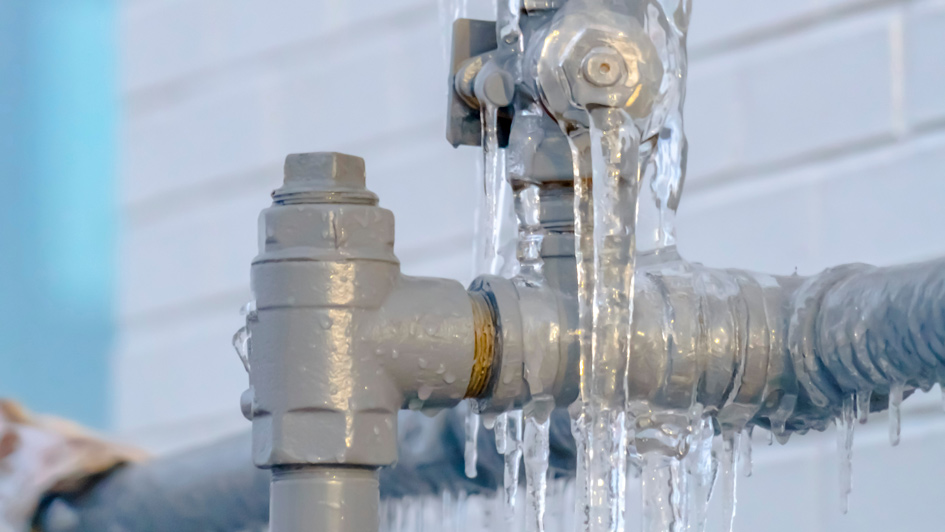
Lots of snow and winter weather offers a fun day sledding down the highest hill or snowball fights in the front yard. However, winter weather can be tough on your home. Excessively cold conditions can cause the water lines in your house's plumbing system to freeze and burst, which can lead to serious water damage and long-lasting negative effects.
Once your pipes are covered in ice, you may want to call a plumber in Thousand Palms to fix them. However, there’s a lot you can do to keep this from happening – and even a little prevention can go a long way.
What Pipes Are at Risk of Freezing
The pipes at the greatest risk of freezing are uninsulated water lines. Frequent locations for uninsulated pipes are within attic crawlspaces, near exterior walls, in the basement or even running beneath a modular home. Water lines that are not appropriately insulated are at the highest risk.
How to Stop Pipes from Freezing Over in Your Home
Properly insulating exposed water lines is a good first step to keeping your pipes ice free. You’ll generally have access to most of these materials from a local plumbing company, and might also already have some someplace in your home.
Be mindful not to cover other flammable insulation materials where they might catch fire. If you don’t feel safe insulating the pipes on your own, contact your local plumbing services professional in Thousand Palms to get the job done right.
If you do decide to insulate the pipes on your own, popular insulation materials for pipes include:
- Wraps or roll insulation: Many plumbers, hardware stores and national retailers provide insulation – usually fiberglass, foam wraps or pipe sleeves – that you can use to wrap or fit around your pipes. They are sold in differing lengths and sizes to suit the needs of your home.
- Newspaper: To some degree, newspaper can be used for insulation. If the weather is going to get cold and you aren’t able to add insulation in time, wrap uninsulated pipes in this.
- Towels or rags: If you don't have the chance to buy insulation and don’t have any newspaper close by, wrapping notably vulnerable pipes with towels or clean rags as a last-ditch effort could be just enough to keep the cold air away from the pipes.
Another preventative step you can attempt to stop pipes from freezing in your home is to fill any cracks that can let cold air into your home. Pay close attention to window frames, which can allow in surprisingly powerful drafts. This not only will help to keep your pipes from freezing, but it will have the added benefit of making your home more energy efficient.
Five More Ways to Keep Your Pipes from Freezing:
- Open the cabinet doors. Opening the cabinet doors underneath the sinks and other spaces of your home with plumbing will permit more warm air from the rest of the room to reach the pipes.
- Letting water drip. Letting water flow by letting your faucets drip even just a bit can help prevent frozen pipes.
- Open interior doors. By opening doors in rooms or hallways, your home can be heated more evenly. This is especially important if you struggle with a room that is frequently colder or hotter than other rooms.
- Close the garage door. The exception to the open doors tip is the garage door, which you should keep closed – especially if your water lines run through the garage.
- Keep the heat consistent. Experts encourage setting the thermostat at a uniform temperature and leaving it there, rather than allowing it to get colder at night. Set it no lower than 55 degrees.
How to Prevent Pipes from Freezing in an Empty Home
When you’re inside a house, it’s easy to realize when something breaks down. But what extra steps can you try to keep pipes from freezing in a vacant home or vacation home when the consequences from a frozen pipe may not be discovered for days or even weeks?
As with the main residence, insulating any exposed water lines, opening interior doors in the home and winterizing the vacant home are the best steps to attempt first.
Added Steps to Prevent Pipes from Freezing in an Empty Home:
- Leave the heat on. Even though you won't always be home, it’s best to leave the heat on – even if you switch the thermostat down lower than you would if you were there. As with a primary residence, experts recommend keeping the temperature at no cooler than 55 degrees.
- Shut water off and drain the lines. If you’re going to be away for several weeks or are winterizing a vacation cabin or cottage, switching the water off to the house and clearing the water out of the water lines is a good way to keep pipes from freezing and breaking. Don’t forget to flush the water out of your appliances, like the hot water heater, and the toilets. Confirm you get all the water from the pipes. If you’re unsure of how to drain the water from the pipes, or don’t feel comfortable doing it yourself, a plumber in Thousand Palms will be delighted to step in.
